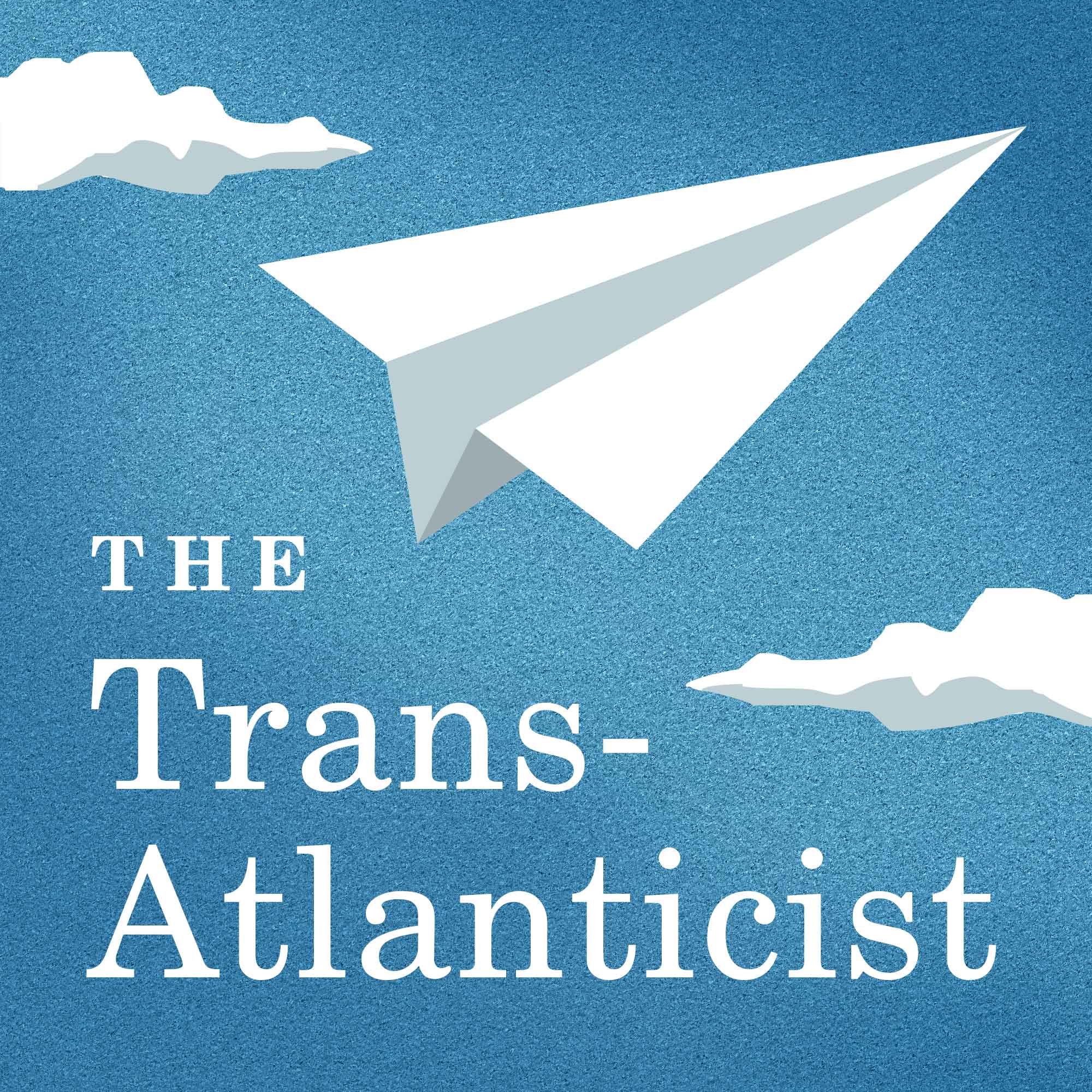The Trans-Atlanticist
Andrew Sola explores the past, present, and future of relations between Europe and the United States with scholars, artists, authors, politicians, journalists, and business leaders. Based at the Amerikazentrum in Hamburg, the Trans-Atlanticist provides you with insights from the thought leaders who are shaping the trans-Atlantic relationship every single day.
Revolutionary Women and the Declaration of Independence
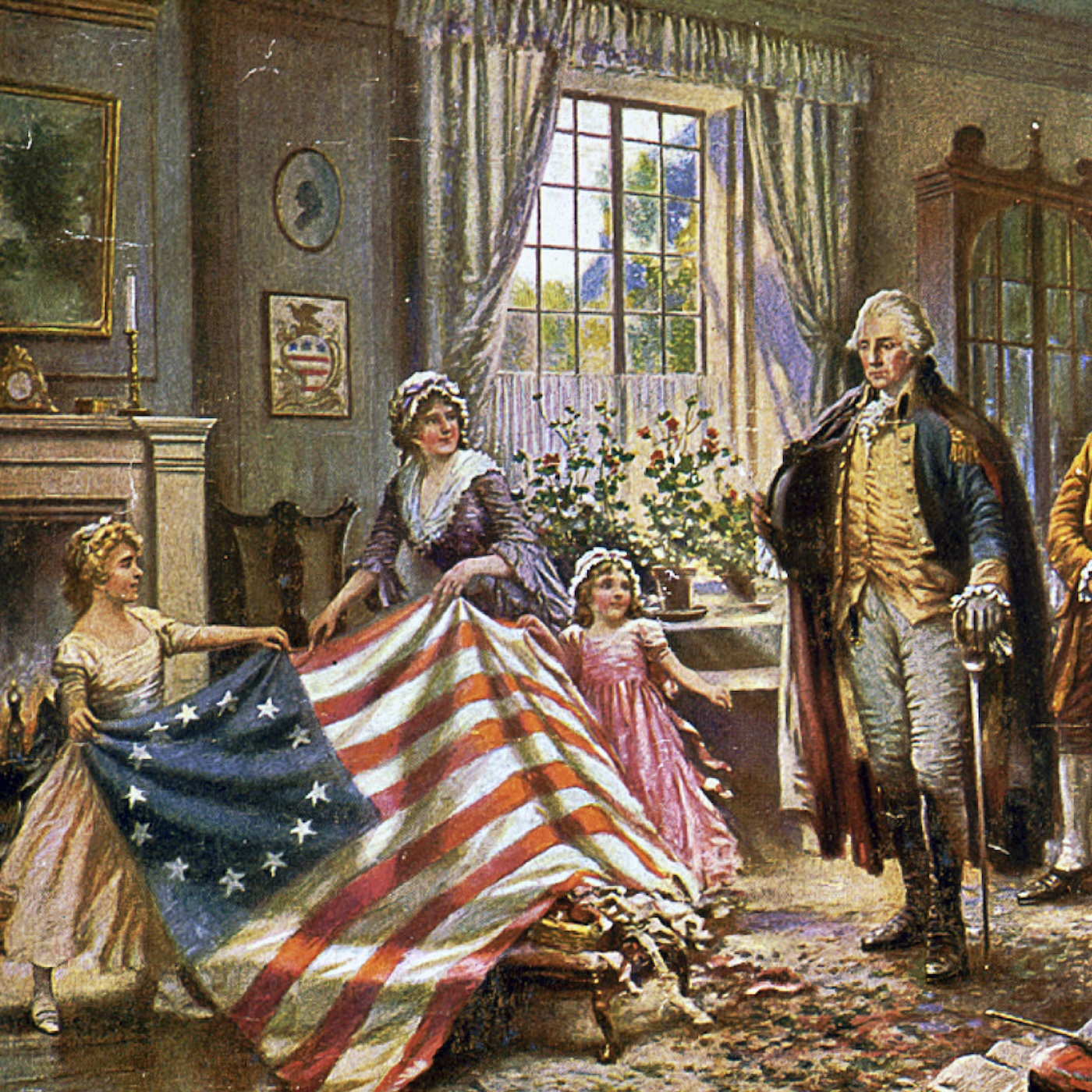
with Andrew Sola and Prof. Rosemarie Zagarri (George Mason U.)
"We hold these truths to be self-evident: that all men AND WOMEN are created equal." Declaration of Sentiments, Seneca Falls Convention
In this episode, Prof. Rosemarie Zagarri explores the legal, social, and political status of women from the Colonial Era through the Revolutionary War, the Seneca Falls Convention (1848), and beyond.
Topics include:
-The tensions between the ideals of the phrase "all men are created equal" and the lived reality of women
-"Coverture" and the legal status of women in the...
The Quartering Act of 1774 and Homosexuality in the Colonies
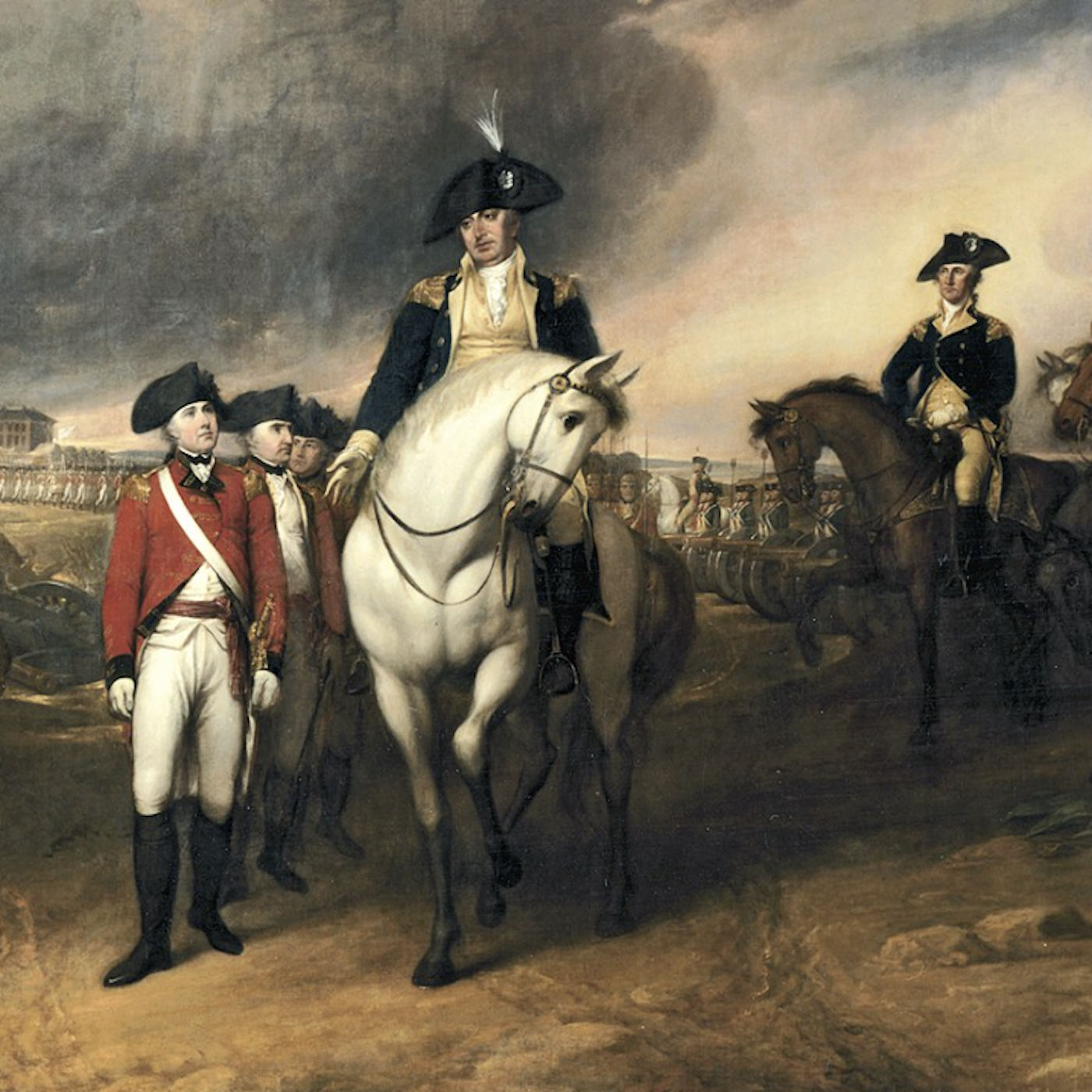
with Andrew Sola and Prof. John. G. McCurdy (Eastern Michigan U.)
"He has kept among us, in times of peace, Standing Armies without the Consent of our legislatures."
This Pride Month episode focuses on two questions.
First, why were American colonists increasingly frustrated with the presence of British troops in the Colonies?
Second, to what extent were Thomas Jefferson and the Founders aware of LGBTQ+ issues at the nation's founding?
Topics include the following:
-Grievances 11, 12, and 14 in the Declaration of the Independence
-The Quartering Act of 1774
<...The Role of Religion in The Declaration of Independence
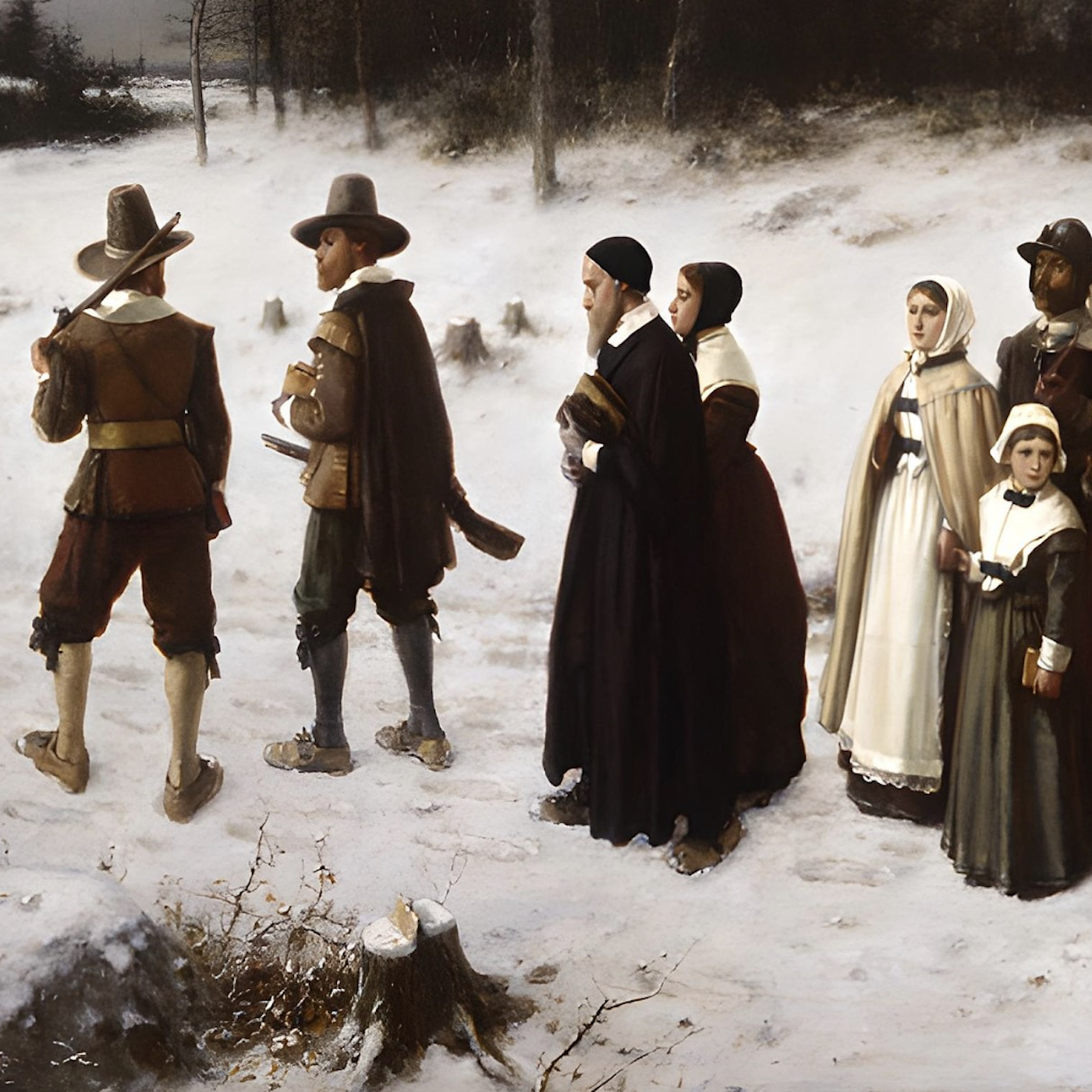
with Andrew Sola and Dr. Thomas S. Kidd (Midwestern Baptist Seminary)
The Declaration of Independence uses the words 'God,' 'the Creator,' and 'Divine Providence,' but many of the Founders were highly skeptical of both Christianity and also organized religion, preferring the scientific and rational ideals of the Enlightenment.
In this episode, we explore the tensions between religion and reason in the Declaration of Independence.
Topics include the following:
-Theistic and deistic beliefs in the Founders, including Franklin and Jefferson
-The different religious groups in the Colonies, from Baptists...
Immigration and Free Trade in the Declaration of Independence
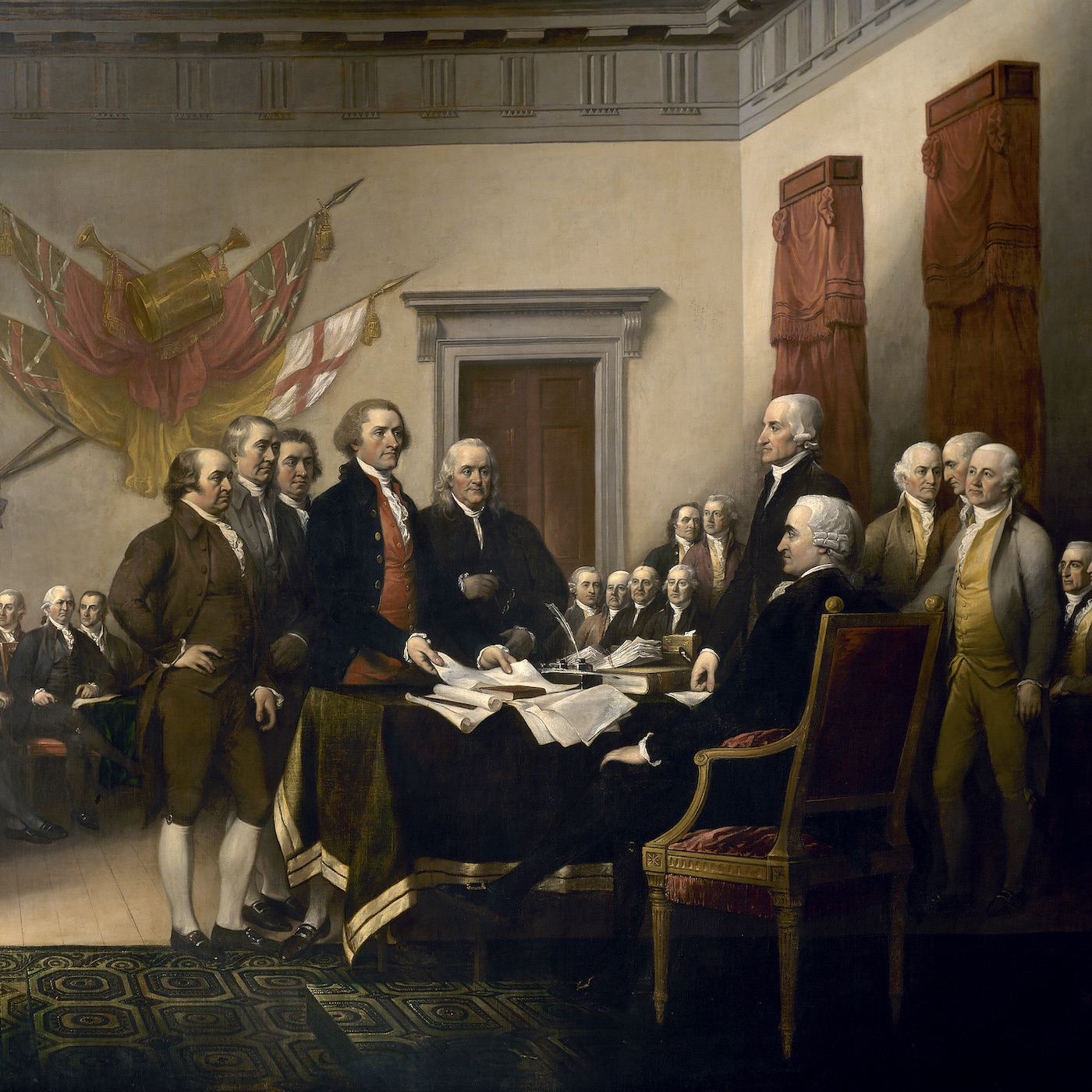
with Andrew Sola and Prof. Steven Pincus (U. of Chicago)
"He has endeavoured to prevent the population of these States; for that purpose obstructing the Laws for Naturalization of Foreigners; refusing to pass others to encourage their migrations hither, and raising the conditions of the new Appropriation of Lands"
…"for cutting off trade with all parts of the world."
In this episode, Steven Pincus explores grievances against King George for restricting free trade and for preventing immigration to the colonies.
Topics include the following:
-The importance of the trans-Atlantic Patriot Party, wh...
Native America and the Declaration of Independence
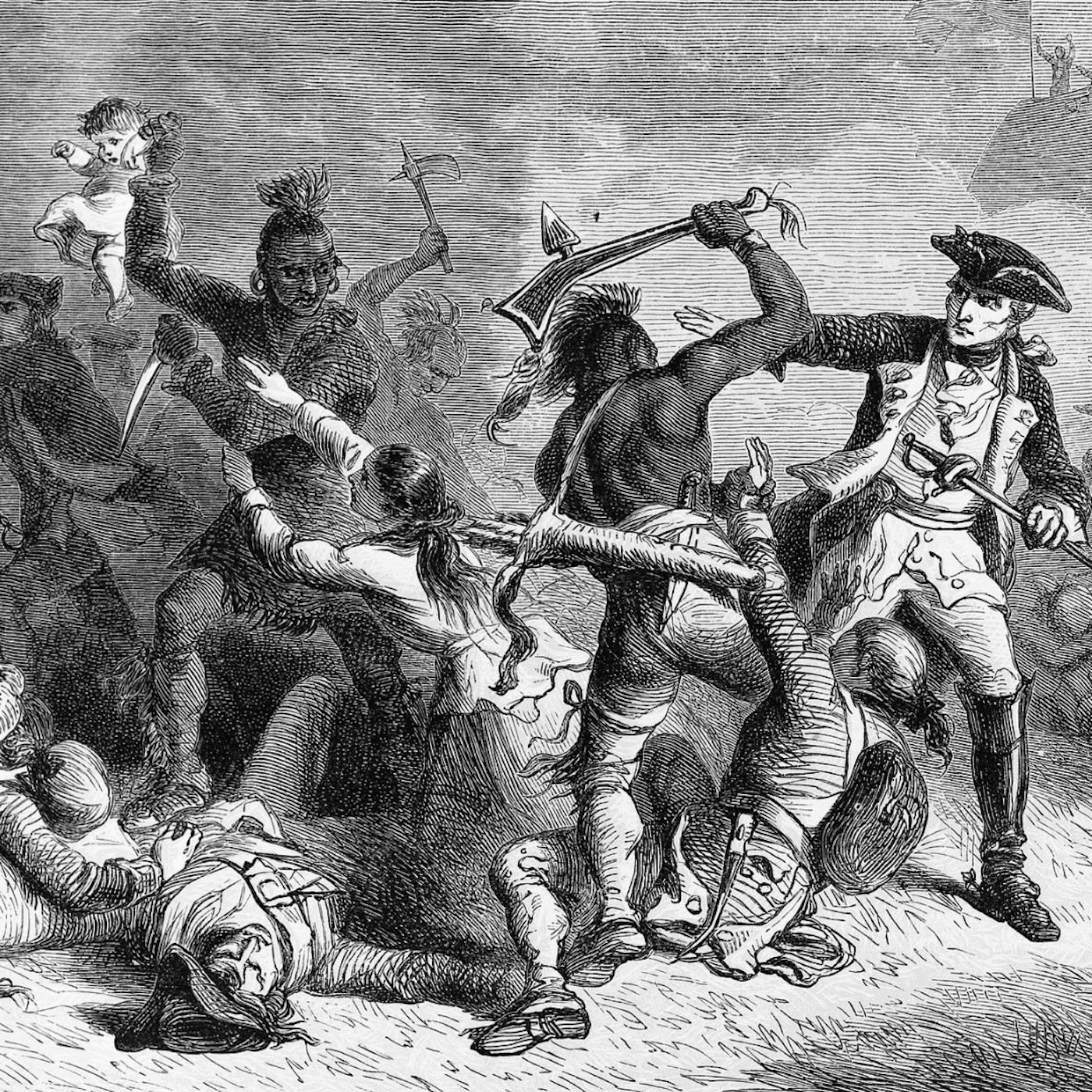
"He has excited domestic insurrections amongst us, and has endeavoured to bring on the inhabitants of our frontiers, the merciless Indian Savages, whose known rule of warfare, is an undistinguished destruction of all ages, sexes and conditions." How are we supposed to understand the phrase "merciless Indian Savages" in the Declaration of Independence? In this episode, expert in American Indian history Prof. Matthew Kruer (U. of Chicago) gives a thorough analysis of indigenous-colonial relations from the Seven Years' War (1756-1763) through the Declaration of Independence (1776). Topics include the following: -The enormous diversity of the 574 indigenous nations recognized by the US...
Thomas Jefferson and the Composition of the Declaration of Independence
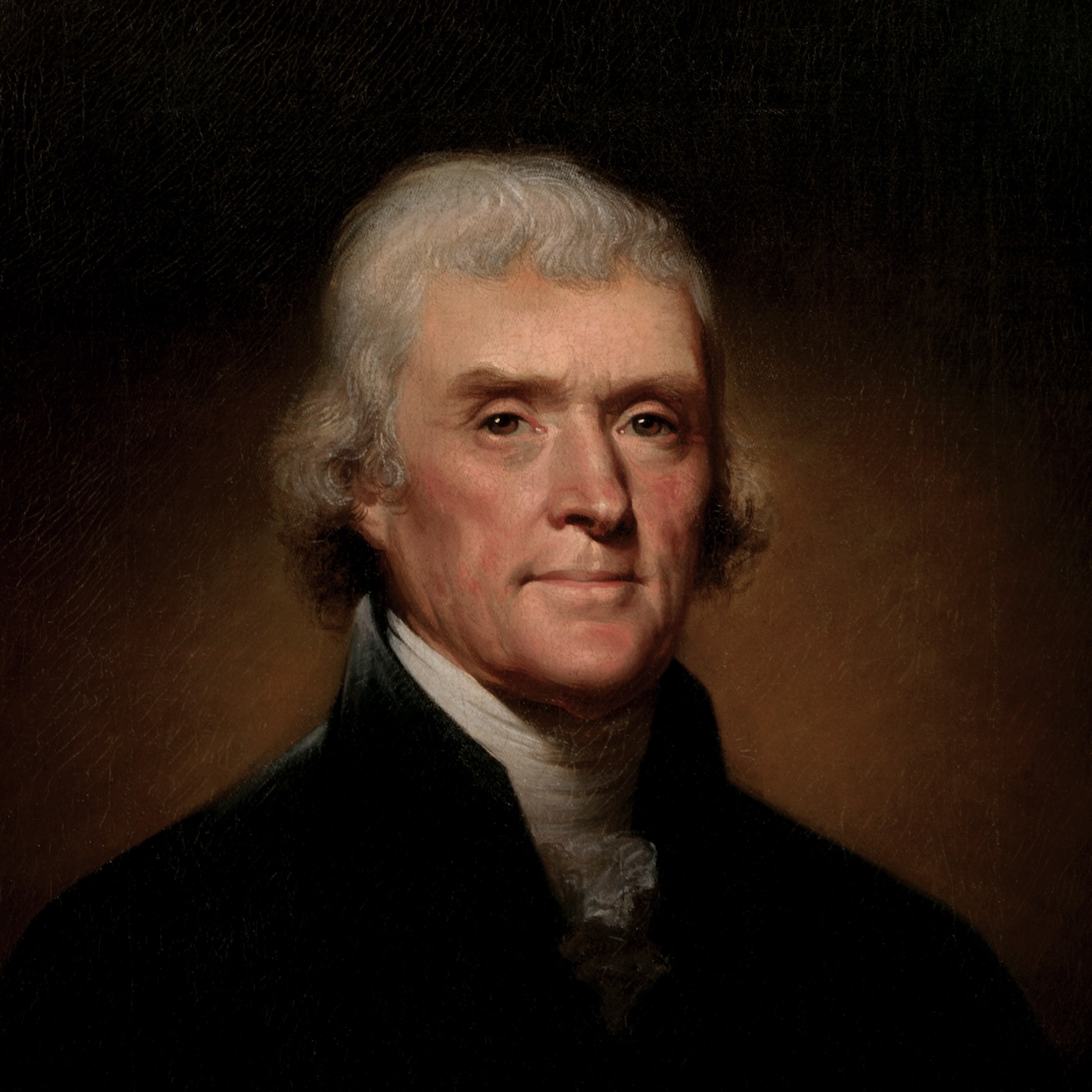
with Andrew Sola and Prof. Robert McDonald (US Military Academy-West Point)
Who was Thomas Jefferson and how did he come to write the Declaration of Independence at the tender age of 33?
In this episode, historian Robert McDonald (US Military Academy) discusses the genius of Thomas Jefferson. Topics include the following:
-Jefferson's evolution into a revolutionary
-The long tradition of self government in the Colonies
-The process of composing the Declaration of Independence
-The deletion of the passage condemning slavery (see the full passage below)
-Jefferson's reputation in...
Introducing Life, Liberty, and the Pursuit of Happiness: 250 Years of the Declaration of Independence
with Andrew Sola
This episode is from our brand new series called "Life, Liberty, and the Pursuit of Happiness" to commemorate the 250-year anniversary of the Declaration of Independence.
In this introductory episode, you will learn about some key events leading up to the Declaration of Independence. Check out additional information at amerikazentrum.de.
If you have any thoughts, please share them on our YouTube channel: @declarationofindependence250.
Here is the timeline:
1756-1763: The Seven Years’ War AKA The French and Indian War
1763, 10 February: Treaty of Paris (ended the war)
...Ambassador Doug Lute on The Future of the Trans-Atlantic Relationship
with Andrew Sola and Doug Lute (US Ambassador to NATO, 2013-2017)
The new administration in Washington has forced both Americans and Europeans to reckon with an emerging new security environment.
How should we understand this new world order? Is it time to panic?
Ambassador Doug Lute (US Ambassador to NATO, 2013-2017) outlines the contours of this new world and explains why we should not panic.
Topics include the following:
-Updates from the Munich Security Conference
-Consequences of the Trump-Zelenskyy White House summit
-A primer on 4 traditional pillars...
Analysis of the 2025 German Elections
with Andrew Sola and Günter Danner
Andrew Sola and Günter Danner analyze the 2025 federal elections in Germany, focusing on the social, economic, and security challenges facing Germany, Europe, Ukraine, the USA, and the world.
2024 Review and 2025 Preview
with Andrew Sola and Günter Danner
In our final politics podcast of 2024, we look back at the political developments in France, Germany, and the US in 2024. We also look ahead to issues facing Germany, Europe, and the US in 2025.
Topics include the following:
-French President Macron's difficulties with internal French politics
-the collapse of Chancellor Scholz's coalition government in Berlin
-issues that will affect the elections in Germany in February, including the economy and illegal migration
-Trump's approach to tariffs and support for Ukraine
Happy New Y...
The German Architects Who Built Chicago: From Mies van der Rohe to Dirk Lohan
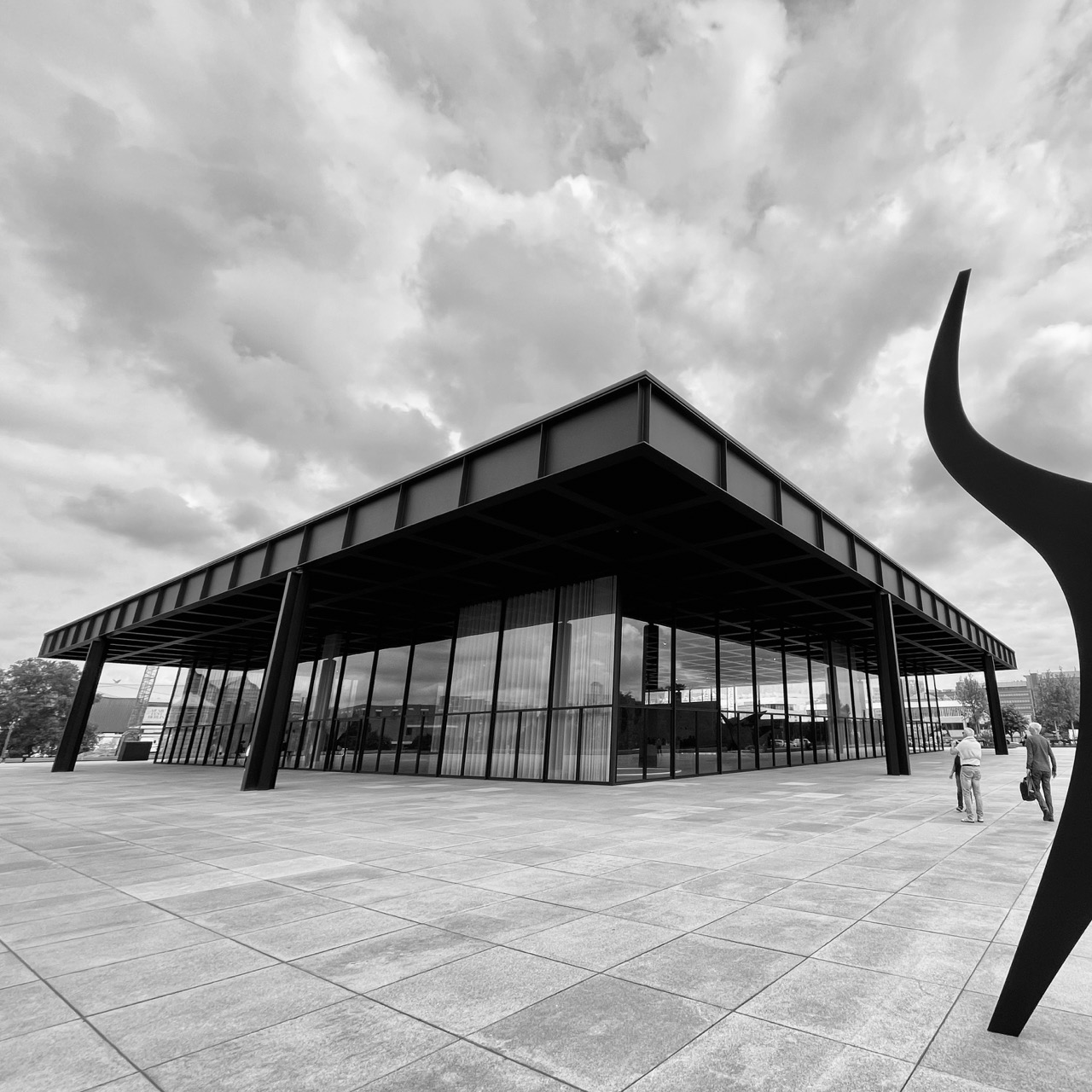
with Andrew Sola, Dirk Lohan, and Rolf Achilles
This episode is part of the ChicagoHamburg30 podcast series, which is celebrating the 30-year anniversary of the Chicago-Hamburg Sister-City partnership (1994-2024).
In our 30th and final episode celebrating the 30-year anniversary of the Chicago-Hamburg Sister-City partnership, we look at the German architects who literally built the buildings that Chicagoans live, work, and play in today.
After discussing the early history of German architects in Chicago, we discuss the life and career of Mies van der Rohe through the memories of his grandson Dirk Lohan. We cover van...
Germany's Reaction to the US Elections PLUS The Collapse of Germany's Government
with Andrew Sola and Christina Neuhaus
In this episode, Andrew Sola and AFP journalist Christina Neuhaus discuss Germany's reaction to the US elections as well as the collapse of the German government.
Topics include the following:
-Public and private reactions to Trump's victory
-The reactions of all the different political parties, including BSW, AFD, die Linke, SPD, CDU, the Greens, and FDP
-Different policy issues that concern Germany and Europe, including Ukraine, trade, tariffs, and the climate
-The climate of predictable unpredictability that will characterize trans-Atlantic politics for the...
A German Immigrant's Story: Walter Heinsen's Journey from WWI Battlefields to Chicago
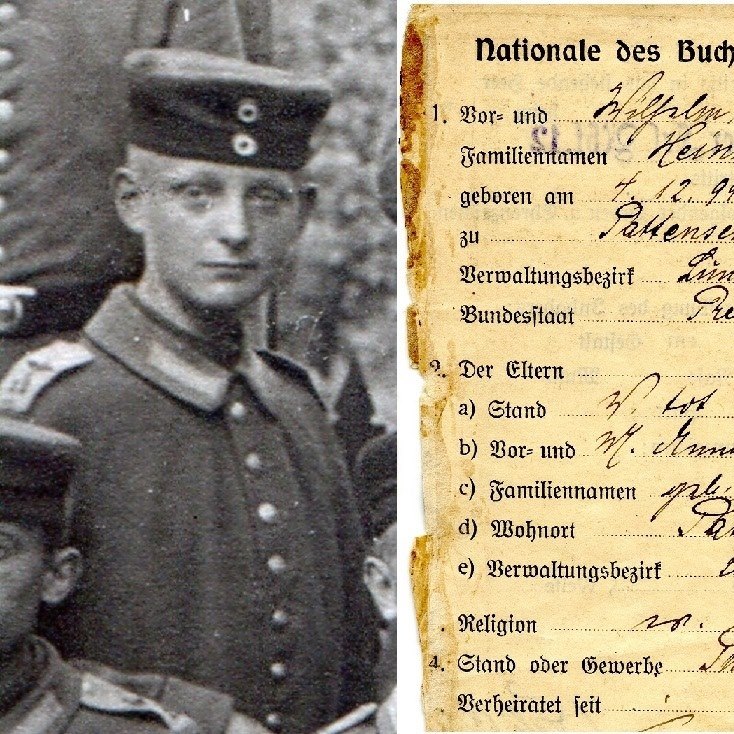
with Andrew Sola and John Heinsen
This episode is part of the ChicagoHamburg30 podcast series, celebrating the 30-Year Anniversary of the Chicago-Hamburg Sister-City relationship.
Happy German-American Heritage Month!
In this episode, we explore the remarkable story of one German immigrant who left Hamburg for Chicago in 1923, Walter Heinsen, through the lens of his grandson John.
Walter was an aerial photographer for the German Empire during WWI, where he met historical figures like the Red Baron (Manfred von Richthofen) and Kaiser Wilhelm II. However, he also photographed regular soldiers, including British and American prisoners...
Edgar Allan Poe: 175 Years after His Death
with Gottfried Haufe and Verena Adamik
In this episode we commemorate the life and work and ongoing influence of Edgar Allan Poe (1809-1849), 175 years after his death.
Poe is a fascinating historical figure and his literary work is known throughout the world. In this episode, we explore both his complicated life story as well as his ongoing influence on all forms of creative production. We discuss the loss of his mother and his early years in London; we examine the role of Romanticism in his writing; we take you through his time in Baltimore and his role...
The Diversity of Hispanic Chicago
with Andrew Sola, Elena Gonzales, and Lilia Fernandez
This episode is part of the ChicagoHamburg30 podcast series, celebrating the 30-year anniversary of the Chicago-Hamburg Sister-City Anniversary.
We're celebrating Hispanic-American Heritage month with a deep dive into the rich history and diversity of the Hipanic/Latino/LatinX/Latine community in Chicago.
Topics include the following:
-the debate about the language we use to describe the Hispanic or Latino community -the first Latinos in Chicago in the 1850s -the political upheavals in Central and South America that drove migration -the mass deportations during the Depression ...
US Election Series: Migration, the Border, and the Latino Electorate
with Andrew Sola and New York Times Politics Reporter Jazmine Ulloa
It's Hispanic-American Heritage Month, so today's episode focuses on the unique role that Latino voters play in American politics.
Andrew Sola and New York Times National Politics Reporter Jazmine Ulloa analyse the Latino electorate and discuss the following points:
-the diversity of the Latino electorate -the growing influence of Latino voters -explanations for historically lower voter turn-out among Latinos -Democratic and Republican strategies to reach out to Latinos -the role of swing-states like Arizona in the presidential election -Latino responses to aggressive anti-immigrant rhetoric ...
AfD & BSW Success in Thuringia and Saxony PLUS Who Are Björn Höcke and Sahra Wagenknecht?
with Andrew Sola and Günter Danner
This episode features an analysis of the local elections in the east German states of Thuringia and Saxony, which were held on September 1.
The Alternative für Deutschland (AfD) earned the most votes in Thuringia and the second most in Saxony. Furthermore, a brand-new party, the BSW or Bündnis Sahra Wagegnknecht achieved 16% in Thuringia and 12% in Saxony.
Who are the leaders of these parties? We introduce you to Björn Höcke, leader of the AfD in Thuringia, and Sahra Wagenknecht, leader of the BSW.
What...
Analysis of the 2024 Democratic National Convention in Chicago
with Andrew Sola, Charlotte Lerg, and Gary Kissick
This episode is part of the ChicagoHamburg30 podcast series, celebrating the 30-year anniversary of the Chicago-Hamburg Sister-City relationship.
In this special episode, Andrew Sola and his guests discuss the 2024 Democratic National Convention in Chicago.
Topics include the similarities and differences between the 1968 DNC and the 2024 DNC; the use of gender and race in the speeches; the main themes of the convention, including the reclamation of a Democratic concept of patriotism; the relative paucity of European and global themes; VP Kamala Harris’s speech; and memorable speeches by ot...
An Eye-Witness Account of the Democratic National Convention in Chicago, 1968
with Andrew Sola, Charlotte Lerg, and Gary Kissick
This episode is part of the ChicagoHamburg30 podcast series, celebrating the 30-Year Anniversary of the Chicago Hamburg Sister-City relationship.
The Democratic National Convention in Chicago 1968 was one of the most important political events in the twentieth century.
It was preceded by a number of earth-shaking crises, including the devastating Tet Offensive in Vietnam in January, President Lyndon B. Johnson's shocking announcement that he would not run for a second term in March, the assassination of beloved civil rights leader Martin Luther King in April, and then the...
A Republic If We Can Keep It - Democracy on the Ballot Since the Very Beginning
with Gottfried Haufe and Thomas Zimmer; introduced by Lina Isabel Stockfisch
The 2024 election is shaping up to be one of the most consequential in history. With two vastly different candidates and visions, the stakes couldn't be higher. What’s particularly concerning this year is the apparent disregard for democratic institutions and values.
Join us as we explore the historical context of this pivotal moment, starting from George Washington’s presidency. To mark 225 years since Washington's passing, Gottfried Haufe and Thomas Zimmer discuss how Washington's precedent of stepping down after two terms has shaped our democracy.
This eve...
A Short History of Organized Crime in Chicago
with Andrew Sola, Robert Lombardo and Joe Kraus
This episode is part of the ChicagoHamburg30 podcast series, celebrating the 30-year anniversary of the Chicago-Hamburg Sister-City partnership.
Chicago is always associated with the Mafia boss Al Capone. But what is the real history of organized crime in the city? When did it begin? What social and economic forces helped it grow? And how did machine politicians, in alliance with gangsters like Al Capone, shape the city?
In this episode, we dissect the connections between vice and politics in the city from its origins to the present...
Literature of Chicago: Upton Sinclair's The Jungle (1906)
with Andrew Sola, Douglas Cowie, and Dominic Pacyga
This episode is part of the ChicagoHamburg30 podcast series, celebrating the 30-year anniversary of the Chicago-Hamburg Sister-City Partnership.
No industry shaped Chicago more decisively than the meatpacking industry, and no book exposed the rapacious, exploitative and vicious character of the meatpacking industry more than Upton Sinclair's The Jungle (1906).
In this episode, we explore the origins and explosive growth of the meatpacking industry, the brutal working conditions on the bloody killing floors, the emergence of literature about Chicago in the early 1900s, the importance of Lithuanians in Chicago...
The 2024 European Union Parliamentary Elections
with Andrew Sola and Günter Danner
Many of the EU's 370 million eligible voters from 27 countries went to the voting booths between 6 and 9 June 2024 in order to cast their votes for the European Parliament.
In this episode, Andrew Sola and our resident EU expert Günter Danner discuss the EU Parliament, its powers, its role in the constellation of EU institutions, and its inner workings. Furthermore, they discuss the results of the election and their significance for France, Germany, and Europe as a whole.
Queer Chicago
with Andrew Sola, Owen Keehnen, and Timothy Stewart-Winter
This episode is part of the ChicagoHamburg30 podcast series, which celebrates the 30th anniversary of the Chicago-Hamburg Sister-City Partnership.
Happy Pride Month!
We celebrate with an episode about Queer Chicago featuring two historians of Queer History, Owen Keehnen and Timothy Stewart-Winter.
Topics include the following: -The difficulties of accessing Queer history since it was repressed and marginalized for so long -The recovery and reclamation of Queer history -Early Gay cultures in the Levy District -The Society for Human Rights, which was the first Gay rights...
The History and Culture of Jewish Chicago
with Andrew Sola, Tobias Brinkmann, and Joe Kraus
This episode is part of the Amerikazentrum's ChicagoHamburg30 series, celebrating the 30-year anniversary of the Chicago-Hamburg Sister-City partnership.
Happy Jewish American Heritage Month! In this episode, we explore the rich and complex history of Jewish Chicago, from the 1850s to the present.
Topics include the following:
-the first Jewish settlers and politicians in Chicago -the influence of German high-culture and Enlightenment philosophy on German Jews in Chicago -the formation of Jewish regimental companies in the Civil War -the second wave of Jewish immigrants and the...
Polish, Czech, Ukrainian, and Lithuanian Chicago and the Hamburg-America Line
with Andrew Sola, Dominic Pacyga, and Tobias Brinkmann
This episode is part of the ChicagoHamburg30 podcast series, celebrating the 30-year anniversary of the Chicago-Hamburg Sister-City partnership.
In this episode, Dominic Pacyga (Emeritus Professor of History, Columbia College Chicago) and Tobias Brinkmann (Malvin and Lea Bank Associate Professor of Jewish Studies and History, Penn State) discuss the immigration of Poles, Czechs, Ukrainians and Lithuanians to Chicago via the Hamburg-America Line.
Topics include the following: -the first Eastern European immigrants in the 1850s -the self-definition of these groups through language, religion, and ethnicity -the concept of spatial...
The History and Culture of Black Chicago
with Andrew Sola and Mary Pattillo
This episode is part of the ChicagoHamburg30 podcast series, celebrating the 30-year anniversary of the Chicago-Hamburg Sister-City partnership.
Learn more about the history and culture of Black Chicago with award-winning scholar Dr. Mary Pattillo, Harold Washington Professor of Sociology and Black Studies at Northwestern University.
Topics include the difficulties in defining Black Chicago, which is neither a static nor homogenous concept; the two waves of the Great Migration of Black people from the rural South to the cities of the North in the early 1900s; the important differences between...
The Politics Podcast: 2024 European and US Preview
with Andrew Sola and Günter Danner
In the final episode of 2023, Sola and Danner look ahead to 2024. They discuss three issues that will influence a number of elections in 2024: the immigration crisis, the war in Ukraine, and the macroeconomic situation.
They then use these issues as a lens to analyze five upcoming elections: the Russian presidential elections in March; the EU parliamentary elections in June; the east German state elections in Brandenburg, Thuringia, and Saxony in September; the expected parliamentary elections in the UK; and the mother of all presidential elections in the USA in November.
The Politics Podcast: 2023 European Year in Review
with Andrew Sola and Günter Danner
In our wrap-up of political developments in the EU in 2023, Sola and Danner discuss the results of the five big European elections this year in Italy, Slovakia, the Netherlands, Poland and Spain. Are we seeing the entrenchment of the far-right across Europe? Or are centrist politicians regaining the advantage? The second topic is the European Council Summit that took place last week and that yielded some mixed results for Ukraine, due to the obstinance of Viktor Orban, PM of Hungary. Lastly, we evaluate the performance of the German coalition government, which had a...
Jane Addams, Advocate for All Part 2: Ideas that Shaped Chicago, the US, and the World
with Andrew Sola, Rima Lunin Schultz, and Ann Durkin Keating
In the second of our two-episode series about Jane Addams, we continue telling the story of Hull House and Addams' impact on the development of the the city of Chicago. Addams was a keen advocate for worker's rights and helped mediate the labor unrest that had been shaking the city since the Haymarket Affair of 1886. We survey the long list of projects she supported from juvenile justice reform to children's music education and from housing reform to the building of playgrounds and libraries. We also meet her partners in...
Jane Addams, Advocate for All Part 1: Early Life to the Founding of Hull House
with Andrew Sola, Rima Lunin Schultz, and Ann Durkin Keating
"The good we secure for ourselves is precarious and uncertain until it is secured for all of us and incorporated into our common life." Jane Addams, Twenty Years at Hull House (1910)
In the first of our two episodes on the life of Jane Addams, we learn about her formative years in a small farming village outside of Chicago, her education, and her relationship with her progressive Republican father, from whom she developed some guiding principles for her life, namely the ideas of Christian stewardship and community engagement...
LadyFiction #21: Solastalgia-The Feeling in the Anthropocene
with Stefanie Schäfer and Lindsay Tuggle
Poet and scholar Lindsay Tuggle is Stefanie Schaefer’s guest in this episode. They talk about "solastalgia," the feeling of loss that occurs when you are "home" but your home is destroyed. This concept has acquired a new global relevance in the Anthropocene as a climate-related mental health concept. They also discuss solastalgia’s meanings as pathology and as a strategy for resilience. Lastly, they assess the impact of Walt Whitman’s Civil War poetry on Tuggle's own poetic engagement with her lost home in Mayfield, KY, which was wiped out by a torna...
History of Chicago Part 4: The Rise and Fall of Germanic Culture (1865-1917)
with Andrew Sola and Sebastian Wuepper
In Episode 4 of our history of Chicago, we discuss the continuing growth and then decline of German Chicago, which largely disappeared with America's entry into WWI in 1917.
Topics include the Franco-Prussian War (1870-1871), which united the German community in Chicago; the importance of German-language newspapers, namely the Illinois Staats-Zeitung; the impact of the Great Chicago Fire (1871) on German communities on the North Side; the next wave of German immigrants who came as industrial workers to help rebuild the city; the left-wing political activities of these new workers, which led to the...
History of Chicago Part 3: The First German Immigrants (1833-1865)
with Andrew Sola and Sebastian Wuepper
In Part 3 of our history, Dr. Sola and Dr. Wuepper, historian of German immigration, explore the first two waves of Germanic migrants to Chicago, the so-called Dreiziger (the 30-ers, the ones who arrived in the 1830s) and the Vierundachtziger (the 48-ers, or the ones who arrived due to the 1848 revolutions in various German-speaking states, duchies, and principalities in what is now modern Germany).
Topics include the rapid growth of Chicago between 1833 and 1880, when it grew from a mere 200 to over 500,000 inhabitants, making it the world's fastest growing city; the difficulty of...
History of Chicago Part 2: Resistance, Removal, Erasure
with Andrew Sola, John N. Low, and Theodore Karamanski
In the second episode of the series, Dr. Sola and his guests, Dr. Low (Pokagon Band of Potawatomi, Ohio State University-Newark) and Dr. Karamanski (Loyola University-Chicago) tell the story of the indigenous people of Chicagoland from the War of 1812 through their violent removal from the region.
Specific topics include the various origin stories of the Potawatomi; the willingness of tribes to accommodate and compromise with Americans; the Indian tribe as a construct of the US government; the Indian Removal Act of 1830; the Blackhawk war of 1832; the Treaty of...
History of Chicago Part 1: Native Ground
with Andrew Sola, Ann Durkin Keating, and Theodore Karamanski
In the first episode of this series about Chicago history, Dr. Sola and his expert guests, Dr. Keating (North Central College) and Dr. Karamanski (Loyola University-Chicago) discuss the history of the indigenous people of Chicagoland from the end of the Ice Age 12,000 years ago through the War of 1812.
Specific topics include the arrival of Paleo-Indians and the development of Mississippian culture, which reached its summit in the indigenous metropolis of Cahokia; the arrival of European traders and settlers; the machinations of European powers in Paris and London to...
LadyFiction #20: My Body Is Not Your Battleground
On Arab and Muslim Feminisms, the Iran Protests, and Feminist Foreign Policy
Stefanie Schäfer kicks off the new season of LadyFiction with her guest Katharina Motyl. They confront many difficult and complex questions about feminist solidarity with the Iran protests, imperial feminism, and the Western obsession with the burka as the only symbol of female oppression, liberation, freedom, or self-determination. Mohja Kahf's poem "My Body Is Not Your Battleground" provides a starting point for reflecting on Arab and Muslim feminism, then and now, and on the potential of a European Feminist Foreign Policy.
The Politics Podcast: Unrest in France, an AFD Election Win, and 500 Days of War in Ukraine
with Andrew Sola and Günter Danner
It's turning into a hot summer in Europe. France is burning in protest after the killing of an ethnic teenager by the police. A Koran was torched in Stockholm, inflaming tensions with Turkey about Sweden's membership in NATO. The far-right AFD party won a local election in East Germany, stoking anti-immigrant tensions. And Ukraine continues to burn after 500 days of war. Andrew Sola and Günter Danner discuss these issues and many more in their summer politics update.
LadyFiction #19: Cultivating Democracy Now: A Conversation with Nora Krug
with Stefanie Schäfer and Nora Krug
The past is present and the present is personal. With her guest, German American author and illustrator Nora Krug, Stefanie Schäfer talks about visualizing Timothy Snyder’s On Tyranny: 20 Lessons from the 20th Century, about flowered wallpaper and swastika trees, and about dealing with German Vergangenheitsaufarbeitung as a West German 40-something in this day and age.
Lady Fiction #18: Oksana Marafioti on Immigration and Belonging in her Memoir "All of Us Fragile and Brave"
with Stefanie Schäfer and Oksani Marafioti
Narratives of immigration and identity formation are never fully told, and they change as we mature. In this episode, Stefanie Schäfer talks to author and activist Oksana Marafioti about her Romani-Armenian-Ukrainian background, her personal American success story, as well as her memoir project "All of Us Fragile and Brave." Touching on the "what" and the "how "of identity assemblage, they also turn to a recent example of the immigration-identity narrative, Nora Krug's "Heimat /Belonging" (2018).
